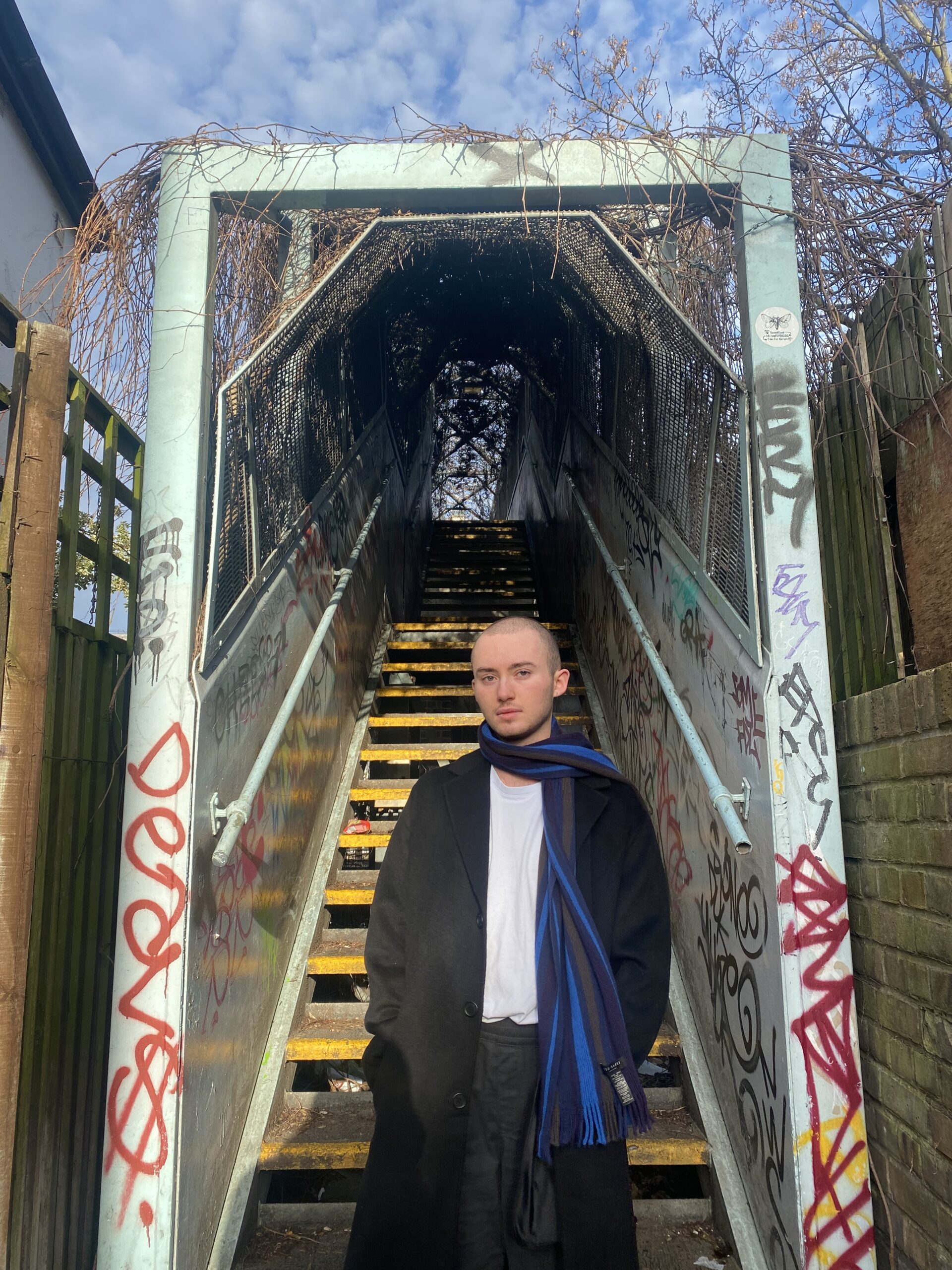When someone says ‘same-sex school’ you might immediately think of the chaos endured by the ruly St Trinian’s boarding school or the childhood classic Malory Towers, but fictional experiences are not always (or ever) truly accurate to the lived experience of pupils attending them – especially if they identify outside of the gender binary.
Until the 1970’s, most secondary schools were segregated into sex with the majority of grammar schools in the UK still following this tradition. However, as of 2024 only 10 percent of mainstream state secondary schools in England are single – sex. So why do they still exist?
Ezra Johnson (he/him), 24, from Wilmslow, moved to an all-girls secondary school at the beginning of year seven having attended a mixed-sex primary school. From a young age Ezra knew his gender identity wasn’t that of a cis-gender woman, however, he didn’t socially transition until he left education.
He says: “I guess it was a surprise to my family after I had sat different exams and looked at the local comprehensive school and elected to go to one of the girls schools, that kind of threw everyone. To this day I’m not entirely sure why I picked it. I became aware of my perceived gender in a particular way and so I started to realise that maybe I should make more of an effort to be one of the girls or eventually I was going to become aware of my difference from boys.”

Ezra Johnson (he/him)
“I always had a masculine manner, but I started to become more aware that I should really try and do ‘Girlhood’ when I got to secondary school. I felt like it was going to become a problem, unless I made an effort to be a girl. I grew my hair out for a couple of years, tried to wear dresses and wore eyeliner and makeup. I kind of came to the realisation that ‘I am a girl’ and ‘I go to a girls’ school’ and I felt there were incongruencies of how I acted and the way were apparent in that environment.”
“I always had a masculine manner, but I started to become more aware that I should really try and do ‘Girlhood’ when I got to secondary school.’ I felt like it was going to become a problem, unless I made an effort to be a girl. I grew my hair out for a couple of years, tried to wear dresses and wore eyeliner and makeup. I kind of came to the realisation that ‘I am a girl’ and ‘I go to a girls’ school’ and I felt there were incongruencies of how I acted and the way were apparent in that environment.
Ezra didn’t ‘come out’ as trans when he was at school, because he felt that telling his school would put the power of his social transition into their hands. Instead, he chose to only tell his closest friends and family about his identity as it shaped over the years, with only a few teachers at his school referring to him with his chosen pronouns and name.
He says, “I think it’s more complicated than this idea of what trans children are like or that something is always very present and there’s no kind of fluidity, or if you’ve ever liked or enjoyed more feminine or masculine things. If you’re a trans person then that negates your identity or the validity of your identity. It might be tempting for parents to be more concerned that it’s just a phase or something, and they say ‘you really liked playing with dolls when you were a child, and you were really feminine and this is coming out of nowhere.
“It wasn’t the typical narrative of me being rigidly masculine and my parents, family and school were forcing me into a particular box and I had always been resisting it. I wanted to experiment with being a girl and trying out that kind of way of being and I didn’t hate it for a while, there were just other things that suited me better.”
Research conducted by Richard Reeves in his book, Of Boys and Men, suggests that single-sex education can remove the distractions created when confined spaces and teenage hormones are able to coexist. Girls are only surrounded by girls and boys are only surrounded by boys, supposedly eliminating sexual attraction (and also eliminating the gay and lesbian community). However, the argument stands that we live in a society which is ‘co-ed,’ where many people worldwide are able to express themselves in whatever manner they see fit.
Although Ezra felt safer at the all-girls school then he believes he would have at a mixed-gender institution, he wasn’t able to fully express himself at school as his gender was never fully addressed by him, his parents, or by the teachers. This silence left him in a position where he had to wait until he left school to fully embrace his identity.
Ezra says, “Even though all the teachers clearly knew, and some of them referred to me using my preferred name and pronouns, that conversation was still never explicit. I think in part because it’s a really scary conversation to have regardless of whether you are generally supported. Coming out is still a really big, draining scary thing to do and I think I was happy to not have that conversation wherever possible.
“Just even the thought of setting up a meeting is just too much now. It felt too much like I was putting the power in someone else’s hands and I didn’t feel like there would be, especially at a girls school, the necessity to take those steps for me and it could have just caused complications. I was so close to the end, I elected not to do that.”
Ezra’s school uniform didn’t allow the girls to wear trousers, and it was only in the last few years of education that he was allowed to wear his own clothes, allowing him to continue exploring his gender identity at the pace he felt comfortable with. However, although he was never outlined as being ‘different’ for his sense of style or the way he chose to present himself, he didn’t feel outwardly supported.
“The lack of explicit affirmation that this would be fine made me definitely feel less supported than I would have liked. I didn’t know and I still don’t know whether it would have been okay for me to say ‘I want to go by these pronouns’ and ‘I want to be called this name’ because it wasn’t something that was done, it wasn’t something that was explicit. I was given little indication from the school that that was something that was okay and to be respected.”
School and education forms a great part of the foundation of life, and people should be prepared to enter into it. Having daily interactions with a diverse and intersectional group of people allows for individuals from different backgrounds to share ideas, learn from each other and ultimately open their eyes to the ‘real world.’ As well as being surrounded by diversity, students should also be given the space and opportunity to express themselves, and meet people who share the same experiences as them.
Ezra says, “I do think it is worth being more explicit without targeting particular pupils. I think that having an LGBTQ+ club, even if you don’t attend or don’t have the confidence to, knowing that there is a community there is something. I think even having assemblies where it is a topic or where its brought up in PSHE allows people to know there is support for you and even if your peers are going to take the mick that the school is on your side and is supporting you. Knowing there is a place for you is a big deal, and it’s what would have made coming out in a home environment easier as well.
“Little, explicit hints like ‘this is okay’, ‘this is fine’, allows people to feel comfortable and confident that this is okay without having to come out into the unknown. You’re allowed to just slowly creep out of the closet, or slowly open the door, if you know the environment is accepting rather than it feeling like a much bigger step to come out to an environment where you don’t understand what is going on.”
Although single-sex schools are not the root cause of non-binary and transgender students facing discrimination at school, they do create a gendered environment which defines who are ‘girls’ and who are ‘boys,’ leaving little room for gender expression and identities which break the binary. Ezra felt comfortable at school – not because it was an all-girls school – but because he knew if he moved to a co-ed school the prejudice he would face would likely be far worse. Therefore, is it single-sex schools that we should be questioning, or the education system itself?

